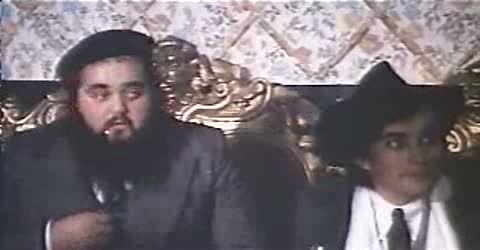Réalisation:
Federico FelliniScénario:
Federico FelliniPhotographie:
Giuseppe RotunnoMusique:
Nino RotaActeurs·trices:
Peter Gonzales Falcon, Anna Magnani, Marne Maitland, Elisa Mainardi, Federico Fellini, Alberto Sordi, Cassandra Peterson, Dennis Christopher (plus)Résumés(1)
Rome durant la première moitié du XXe siècle… A travers ses souvenirs d’enfance ou d’adolescence, Federico Fellini livre la plus belle des déclarations d’amour à sa ville d’adoption. De la nostalgie à la satire, de la truculence au lyrisme, une fresque inoubliable, aux innombrables séquences d’anthologie. (ESC Distribution)
Critiques (3)
A film that is loosely adjacent to Amarcord, but really loosely "double underlined". Narratively gripped stories from a small town replace the chaotic world of the city. The young boy arrives in an Italian jungle full of life, lights and screaming, and along with the change of environment, Fellini's directorial style changes. Roma is a work on the edge between documentary and film and skillfully works with fast editing, layered dialogues and shattering of various scenes. In the cabinet of curiosities of the city, not only do the stories of many people intertwine, but also two time planes – the past (with Peter Gonzal Falcone as a young man, discovering the secrets of Rome) and the "present", in which the shooting of the film is directly emphasized (Fellini plays the main role). Fellini's talent for a pointed situation does not disappear in the clutter of voices and events (an absolutely ingenious church fashion show, the discovery of a well-preserved Roman villa in the city's underground). Roma is indeed a masterpiece, which on one level is a plastic representation of life in the mother of all cities, on the other a metaphor for the civilization that arose on its foundations. An extraordinary film for extraordinary moments... :o)
()
What should I have taken from Rome? Why do beautiful images, which will stay in my mind for a very long time (fading frescoes), alternate with long boring scenes for which I am unsuccessfully searching for the key (cabaret)? What do these disconnected scenes mean that have no relation to the idea that has so far led the narrative? Or is it really just a tribute to the beloved city? I tried, but perhaps it is not my place to penetrate these walls. Fellini, for me, still only means Amarcord.
()
Unexpectedly shallow and intellectually empty for Fellini’s standards. It may mean more to the Romans, but for me it managed to convey almost nothing in those two hours, and some scenes, like the "fashion show" in the presence of church dignitaries, made absolutely no sense in the context of the film as a whole (and this is the first time this has happened to me with Fellini). While I understand the purpose and admire the successful variable narrative style, it flew way over my head.
()

